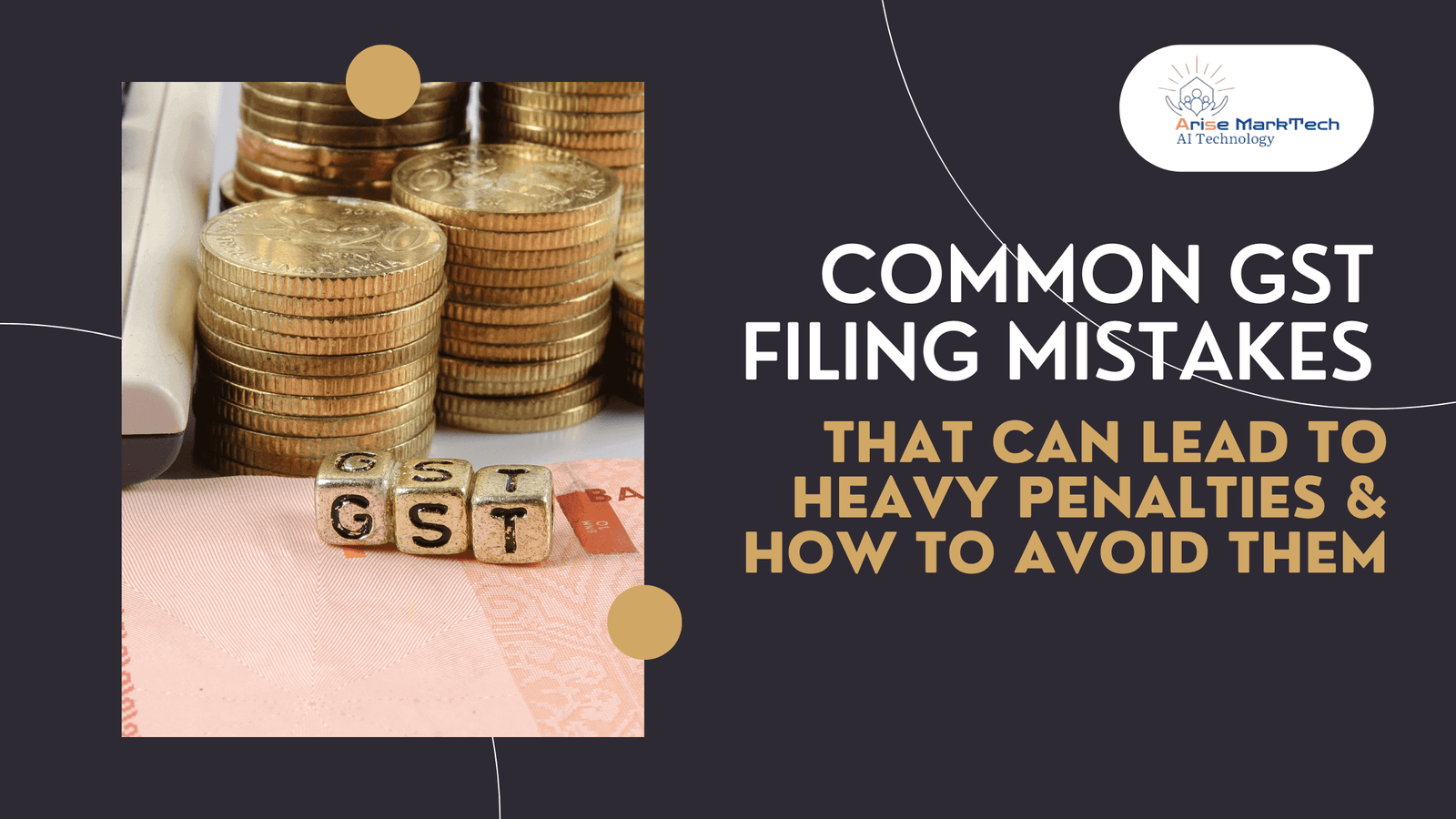In this article, we’ll explore some of the most common GST filing mistakes and practical ways to avoid them. Whether you are a startup, an SME, or a large corporation, ensuring accurate GST filing is essential to avoid legal troubles and maintain compliance. If you’re looking for professional GST filing services in India, this guide will help you understand the importance of error-free returns.
One of the most frequent errors businesses make is delayed GST return filing or submitting incorrect details. Many companies miss their GST return deadlines, leading to penalties and late fees.
Late Fee: ₹50 per day (₹25 CGST + ₹25 SGST) for regular taxpayers and ₹20 per day for NIL returns.
Interest: 18% per annum on outstanding GST liability.
Maintain a GST compliance calendar with all due dates.
Automate GST return filing using GST software or accounting tools.
Hire a professional GST filing service in India to handle returns efficiently.
Mismatch between outward supplies in GSTR-1 and tax paid in GSTR-3B can create compliance issues and lead to notices from the GST department.
Tax authorities may reject input tax credit (ITC) claims.
The taxpayer might have to pay additional taxes, along with interest.
Reconcile sales data before filing returns.
Ensure invoice-wise matching of GSTR-1, GSTR-3B, and GSTR-2A.
Use GST reconciliation tools for error-free reporting.
Claiming excess or ineligible ITC can result in severe penalties and legal action. Businesses sometimes claim ITC on blocked credits, such as motor vehicles (except for transport businesses), personal expenses, and ineligible input services.
ITC reversal with 24% interest per annum if wrongly claimed.
Additional penalty up to 100% of the tax amount in cases of fraud.
Cross-check ITC eligibility before claiming credit.
Match ITC with GSTR-2A & GSTR-2B statements.
Seek professional assistance from reliable GST filing services in India.
Incorrect tax invoice details, such as wrong GSTIN, missing invoice numbers, or incorrect tax calculations, can cause reconciliation issues.
Invoices may get rejected, delaying ITC claims.
Businesses may need to revise returns, leading to additional compliance work.
Always double-check invoice details before filing.
Use GST-compliant billing software to generate error-free invoices.
Regularly update customer GSTIN details in your records.
Many businesses assume that if they have no taxable sales, they don’t need to file GST returns. However, failing to file NIL returns attracts penalties.
₹20 per day (₹10 CGST + ₹10 SGST) for NIL returns.
Persistent non-filing may result in GST registration cancellation.
Even if no sales occurred, always file NIL returns on time.
Set up automated reminders for GST return filing.
Businesses often forget to pay GST under the Reverse Charge Mechanism (RCM) when purchasing from unregistered suppliers.
Non-compliance with RCM leads to tax liabilities and penalties.
The taxpayer may lose ITC if the GST is not paid under RCM.
Identify transactions liable for RCM before filing GST returns.
Maintain separate records of RCM invoices.
Businesses with annual turnover above ₹10 crores (as per 2023 updates) must generate e-invoices for B2B transactions. Failure to comply leads to penalties.
₹10,000 per invoice for non-compliance.
Risk of rejection of input tax credit (ITC).
Check if your business falls under mandatory e-invoicing.
Use GST-compliant invoicing software.
Avoiding GST filing mistakes requires expert knowledge, accuracy, and timely compliance. Arise Marktech offers end-to-end GST filing services in India, ensuring your business remains compliant while saving time and money.
Accurate GST return filing to avoid penalties.
Timely reminders & automated filing to meet deadlines.
Expert reconciliation of ITC claims to maximize savings.
Dedicated support for audits & compliance checks.
Customized GST solutions for startups, SMEs, and enterprises.
Want hassle-free GST compliance? Get in touch with Arise Marktech today!
GST compliance is essential for every business operating in India. Even minor GST filing mistakes can lead to heavy penalties, ITC rejections, and legal issues. By following the best practices outlined above and partnering with a trusted GST filing service in India, businesses can ensure smooth and error-free GST compliance.
Need professional GST filing assistance? Contact Arise Marktech today for expert solutions!

Your experience on this site will be improved by allowing cookies.
 March 19, 2025 - BY Admin
March 19, 2025 - BY Admin